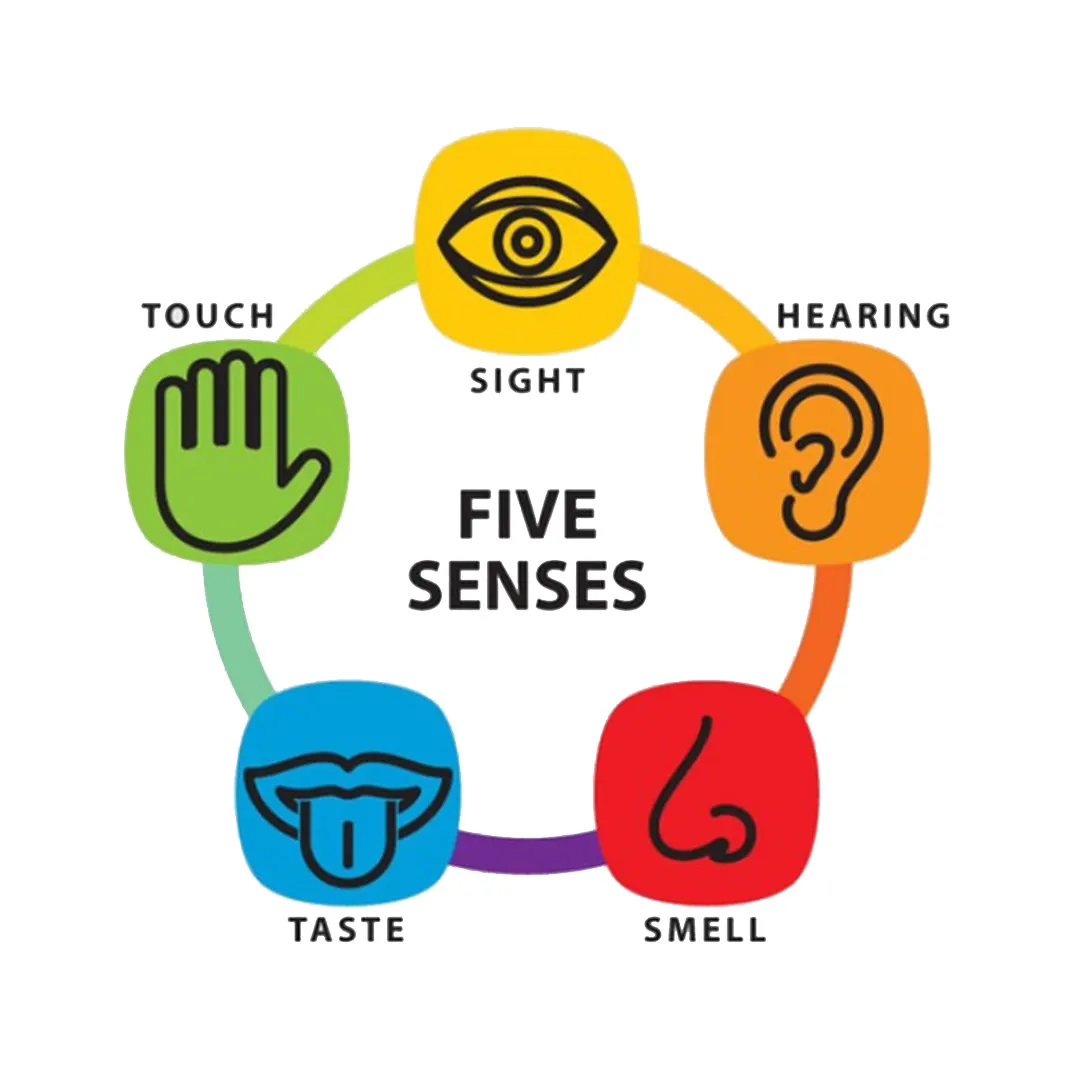HOW CAN I GET THE BEST SLEEP?
Do you have a hard time Sleeping do you have Asomina?! will before you start taking all kinds of medication to asset you to Sleep you might want to Check nature alternatives...
The simple answer is have you hit all of your senses?
HEAR,SITE, TAST,SMELL,SMELL
although I can elaborate on each and every sense of your body and how it plays an important role in how you sleep. ill give you a brief overview of each scene in this blog

HEARING

LISTEN TO Nature Sounds/ Ambiance tones
A systematic review and meta-analysis evaluating the effects of music on the sleep quality of older adults found that listening to sedating music was more beneficial in improving sleep than listening to rhythm-based music. But it helps to make it a nightly habit.
Those who listened to sedative music before bed for at least a four-week duration had the biggest benefit.
While silence is often thought to be optimal for sleep, preferences regarding environmental noise can vary based on personal experiences and the conditions our ears have come to associate with rest.
“Oftentimes people have difficulty sleeping away from home," explains Mark J. Muehlbach, Ph.D., clinical director at Clayton Sleep Institute in St. Louis, Missouri. “If you live in an urban area, you are more likely to be exposed to light and noise during sleep ... If you live in a rural area, you may be more accustomed to sleeping in a dark and quiet environment."
If you prefer silence but live in a noisier neighborhood, or with a snoring bed partner, earplugs can help. Many are designed exclusively for sleep and come in a variety of materials, including foam, wax, and silicone. This list of earplugs for sleeping might help you sort through some options.
SMELL

HOW YOUR SENSE OF SMELL IMPACTS SLEEP
It's rare that someone says their neighbor's garlicky pot roast kept them up all night, or that they can't relax without a sprig of rosemary on their nightstand. Still, the nose and its olfactory receptors can impact sleep.
Here are two ways to incorporate the power of smell into your healthy sleep habits:
Therapeutic qualities of some smells have less to do with their universal power over the human brain and more to do with our own socialization.
For example, take the smell of your average coffee brew.
“Our brains learn to associate certain odors with wakefulness," explains Dr. Rosenberg. "In addition to coffee, the smell of peppermint and lemon seem to be alerting."
Smells thought to be relaxing – vanilla, rose and cucumber, for example – may owe their soothing reputation to the activities with which they are associated: massages and candlelit baths.
And then there's lavender. It's the scent with the greatest effect on improving sleep problems, such as insomnia, according to a 2021 meta-analysis of 34 studies on the use of aromatherapy for sleep. Lavender, the scent most often used in aromatherapy studies, reportedly makes your body feel heavy and provides a sense of stability.
To incorporate scent into your sleep, try misting your pillows and sheets with Sleep Number® essential oils.
ADD HOUSEPLANTS IN YOUR BEDROOM
Potted plants can do more than beautify the bedroom.
“Plants are a perfect partner with humans," explains Dr. Dasgupta. “We breathe oxygen – we need it for every cell in our body to make food. And we breathe out carbon dioxide, and you don't want that building up."
Plants, he points out, do the opposite; they require carbon dioxide and give off oxygen. In addition to filtering pollutants, plants naturally give off a little humidity, which can help prevent the nose and throat from becoming uncomfortably dry during the night.
A word of caution. Adding plants to the bedroom can backfire if they irritate the upper respiratory tract.
“You always have to be careful what you pick," says Dr. Dasgupta.
“Unfortunately people with asthma have their asthma flare up at night," he says, and certain smells can cause swelling in the nasal passage. “And what do you do when that gets swollen? You start breathing through your mouth, you're going to be snoring," which can lead to poor sleep for everyone.
TASTE

HOW YOUR SENSE OF TASTE IMPACTS SLEEP
Last but not least, what you eat and drink throughout the day can impact the quality and quantity of our sleep. The reverse is also true. How well you sleep impacts the quality and quantity of what you eat.
When it comes to the sense of taste, the flavors we crave can also be indicators of other health issues and whether or not we're banking enough quality Zzzs.
If your junk food cravings seem out of control, you may be sleep-deprived. In an ethnically diverse study of 500 women, researchers at Columbia University Irving Medical Center found that those who reported not sleeping well tended to overeat and consume a low-quality diet.
SITE

HOW YOUR SENSE OF SIGHT IMPACTS SLEEP
Your eyes and sense of sight play a crucial role in both the quality and quantity of the sleep you get. Light, colors and images in the crucial hours before bedtime can mean the difference between visions of sugar plums and counting the cracks in your bedroom ceiling.
To get a solid night of shut-eye, follow these sleeping tips.
BANISH THE BLUES
Personal technology seems to dominate our world today. But blue light—the very specific wavelength of light that keeps our phones, laptops and tablets aglow—is particularly harmful to sleep.
“The thing about light is that it suppresses the release of a natural hormone in your body known as melatonin. And you need that melatonin to sleep," explains Raj Dasgupta, MD, spokesperson for the American Academy of Sleep Medicine and the Chronic Obstructive Pulmonary Disease Foundation. “Blue light is in regular sunlight, but it's in higher concentrations when we talk about iPhones and iPads and Kindles."
Before heading to bed, give your eyes a break from blue light. Harvard Health Publications recommends spending the two or three hours before bedtime away from screens. If you sleep with a nightlight, use a dim, red light.
“Red light has the least power to shift circadian rhythm and suppress melatonin," Harvard Health notes.
touch

HOW YOUR SENSE OF TOUCH IMPACTS SLEEP
Your sense of touch can make it nearly impossible to focus on anything besides discomfort when you're too cold, too hot, itchy or in pain.
Sleep is no exception. If your sensory receptors detect anything they don't like, forget about banking a good night's rest.
Here's how to get a handle on your tactile comfort:
SELECT SOFT GOODS
When it comes to mattresses and bedding, there's no standard prescription for comfort.
“What is comfortable for one person may be uncomfortable for another," says Dr. Muehlbach.
If you're shopping for a new mattress, he recommends testing a range of models by lying on them in a variety of sleeping positions. At a Sleep Number® store, exclusive IndividualFit® 3D imaging technology lets you see and feel the pressure points melt away as you find your ideal level of comfort and support — your Sleep Number® setting —which can go far in helping you find the right mattress for you.
Title: Sensory Serenity: How to Harness Your Senses for a Restful Sleep
Keywords: sleep, senses, relaxation, bedtime routine, peaceful slumber, sensory experience
Preview Snippet: Your senses play a crucial role in your overall well-being, especially when it comes to getting a good night's sleep. In this blog post, we delve into the fascinating ways you can harness the power of your senses to create a relaxing and tranquil bedtime routine, ensuring a peaceful slumber night after night.
Are you struggling to get a good night's sleep? Do you often find yourself tossing and turning, unable to switch off your mind, or feeling restless? If so, you're not alone. In today's fast-paced world, achieving restful sleep can be a challenge for many of us. However, finding solace in the power of our senses can help create an oasis of calm before bedtime, setting the stage for a blissful slumber. So, let's explore how we can utilize the five senses of our body to promote a truly serene sleep experience.
- Sight: Dim the Lights, Unleash the Night
Before you dive into your bedtime routine, start by lowering the overall lighting in your surroundings. By softening the brightness, you signal to your brain that it's time to wind down. Consider investing in blackout curtains or an eye mask to block out any disruptive light sources. Creating a peaceful ambiance with soothing colors, such as pale blues or greens, can also help calm your mind and prepare you for a tranquil sleep. - Sound: Tune into Serenity
Sound plays a pivotal role in creating a peaceful environment for sleep. While complete silence can be relaxing for some, ambient sounds can effectively mask background noise and lull you into a tranquil slumber. Experiment with different sounds, such as nature sounds, white noise, or even gentle instrumental music. Utilize a sound machine or a smartphone app to customize your auditory haven. If you prefer complete quiet, earplugs can be your sleep-time companions. - Smell: Aromatherapy for Sleep
Harness the power of scent to promote relaxation and enhance sleep quality. Lavender, chamomile, and vanilla are renowned for their calming and soothing properties. Incorporate these scents into your bedtime routine by using essential oils, scented sachets, or candles. Experiment with different aromas and find the ones that resonate with you. Just remember to choose natural products and ensure proper ventilation for a safe and peaceful scent experience. - Touch: Cozy Up for Comfort
The sense of touch can have a remarkable impact on sleep quality. Take the time to create a comfortable sleep environment by investing in quality bedding, ideally crafted from soft and breathable materials, such as cotton or bamboo. Experiment with different textures to find what feels most soothing to you — plush blankets, silky pillowcases, or even a weighted blanket for added relaxation. Don't forget about temperature control; maintain a cool, cozy atmosphere for optimal slumber. - Taste: Sip Your Way to Sleepiness
While it's advisable to avoid large meals close to bedtime, certain foods and beverages can promote relaxation and prepare your body for sleep. Enjoy a cup of herbal tea, such as chamomile or valerian root tea, to unwind before bed. Warm milk, with its natural calming properties, can also work wonders. Just remember to avoid caffeine and heavy, spicy foods, as they can disrupt your sleep cycle.
Creating a sensory sanctuary before bed can transform your sleep experience. By engaging your sight, sound, smell, touch, and taste, you can foster a peaceful ambiance that puts your mind and body at ease. Experiment with different techniques and find what works best for you. So, why not embark on a journey of sensory serenity tonight and let your senses guide you to a truly restful slumber?
